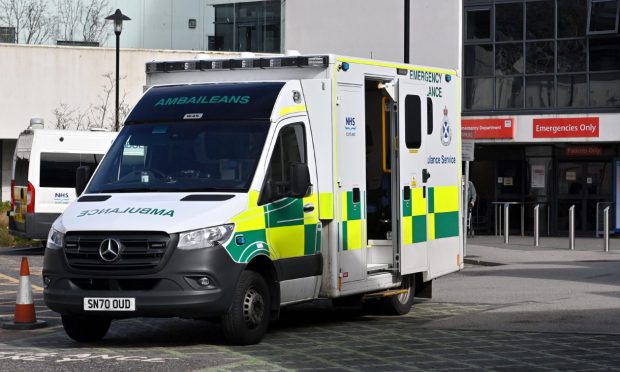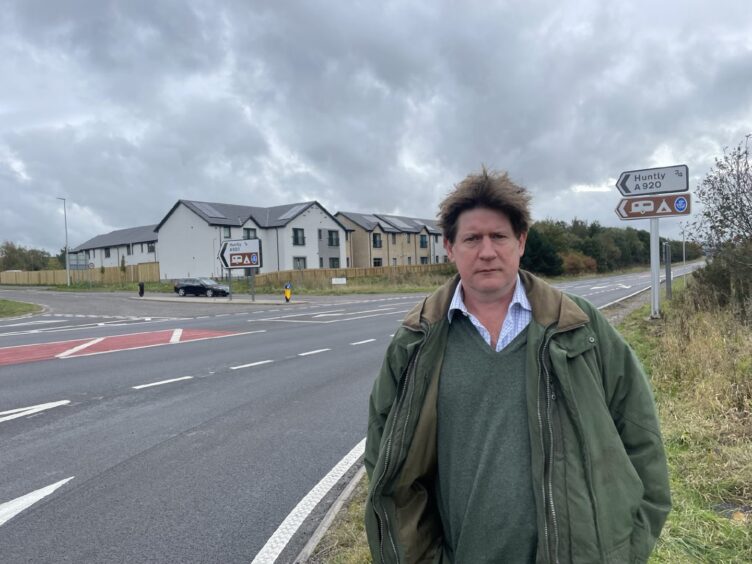
Health chiefs have been warned precious moments that could be the difference between life and death are being wasted as hundreds of 999 calls are transferred from Scotland to other parts of the UK because of staff shortages.
Official government figures show 530 calls to the ambulance service had to be diverted to centres in other parts of the country between November 2023 and October this year – the most up-to-date numbers currently available.
The data reveals the number of distress calls being picked up outside of Scotland increased dramatically during the colder winter months, with a staggering 183 emergencies being rerouted in October alone.
The figures can be revealed after The Sunday Post reported how, in the same month, the birth of a baby in Torpins, Aberdeenshire, turned into a nightmare as the family fought to save her life during a “frightening” long wait for an ambulance.
Health Secretary Neil Gray apologised after the baby’s mum and grandmother were forced to perform CPR while receiving over-the-phone instructions from 999 call handlers hundreds of miles away in Yorkshire.
The family said operators also struggled to locate their rural address – which is covered by an ambulance station just seven miles away in Banchory.
When crews finally arrived on the scene after around 40 minutes, mum and baby had to be transported in separate vehicles wrapped in blankets because one had no heating.
Hundreds of calls transferred
Gray’s apology prompted Orkney MSP Liam McArthur to raise his own concerns after being approached by a number of constituents highlighting examples of what appear to be unnecessary delays in tasking ambulances.
The latest figures, which the UK Government claimed not to hold any record of as recently as December 10, were released following a written question to the Scottish Government by Conservative MSP Alexander Burnett.
There were 137 calls transferred in November 2023 and a further 28 that December.
There were 10 in January 2024, six in February, 10 in March, four in April, 16 in May, 13 in June, 27 in July, 12 in August, 84 in September and 183 in October.
The ambulance service has procedures in place with other UK nations to assist will call handling when centres are experiencing extremely high volumes of calls.
Burnett, the MSP for Aberdeenshire West, said: “Any precious minute wasted could be the difference between life and death in winter.
“So we need Neil Gray to explain why so many calls, often to rural areas, are being routed outside Scotland at an important time of year.
“This winter, many Scots face another harsh period of cancelled operations, long hospital waits and closed local hospitals.
“This isn’t the fault of NHS staff or the brave paramedics at the Scottish Ambulance Service. It is entirely down to an SNP government which has mismanaged the health service for 17 years.”
Delays linked to deaths
The Torphins family, who asked not to be named after being left traumatised by the experience, say they have been left with lingering fears over the baby’s long-term health after waiting so long for help to arrive.
The Scottish Ambulance Service said at the time it was deeply sorry for their experience.
Their case has echoes of other distressing incidents that have brought rural ambulance provision under the spotlight in recent years.
Pam Anderson, a 74-year-old care home manager, died on her way to hospital in Aberdeen after being forced to wait 40 minutes for a two-person crew from Tomintoul.
The first ambulance to arrive had only one crew member so was not allowed to take her.
Meanwhile, previous winters have seen crews warn the service is just a “small sprinkling of snow” away from grinding to a complete halt.
The Scottish Ambulance Service said it has joint procedures across the UK to assist with call handling when control centres are experiencing very high volumes of 999 calls.
Despite the Torphins family’s experience and those discussed by MSPs, it claimed that when an ambulance is required, “the call is handed to a local dispatcher, familiar with the region, which minimises any potential delays”.
The Scottish Government said fewer than 0.1% of the 716,702 emergency calls answered by the ambulance service were handled outside Scotland.
It added: “We are working with SAS and health boards to ensure all calls are responded to urgently, with no unnecessary delays in transferring patients to hospital.”

Enjoy the convenience of having The Sunday Post delivered as a digital ePaper straight to your smartphone, tablet or computer.
Subscribe for only £5.49 a month and enjoy all the benefits of the printed paper as a digital replica.
Subscribe © Supplied by Scottish Conservativ
© Supplied by Scottish Conservativ